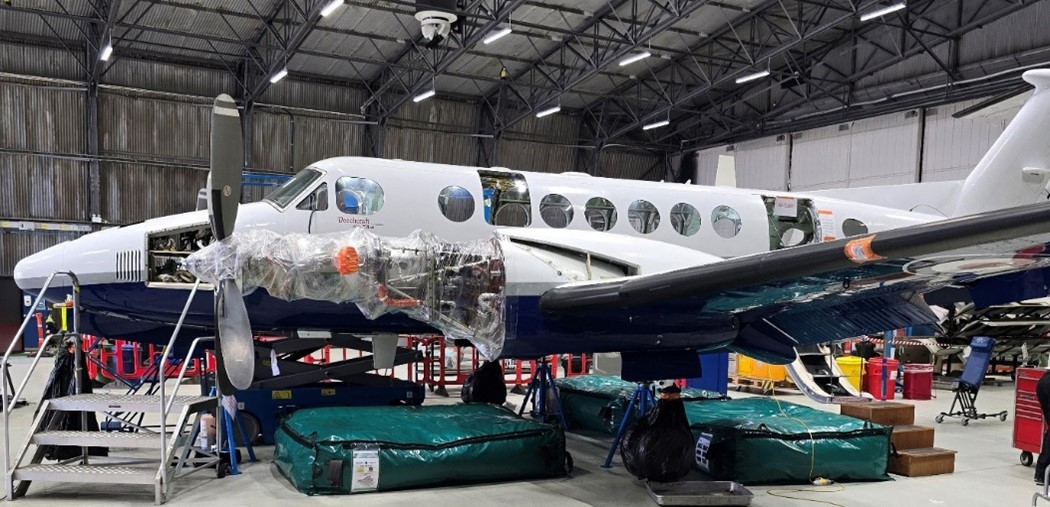RNAS Culdrose gets training upgrades

Image courtesy Ascent
Ascent, in its role as the MoD’s Training Service Partner for the UK Military Flying Training System (UKMFTS), has delivered Rear Crew training (RCS1) at RNAS Culdrose in Cornwall since April 2011. This is based upon a Basic Flying Training course for Royal Navy Observers (RNO) and RAF Weapon Systems Officers (WSO) - initially training up to 36 RNO students each year.
In 2016, the RCS1 contract was extended and included within this was the addition of a Sensor Operator Lead-In Course (SOLIC), providing training to WSO and re-balancing the system throughput to 24 RNO and 19 WSO.
In 2020, the RCS1 contract was further extended, this time including the provision of a Pre-SOLIC Electronic Warfare (EW) training solution to 45 Squadron at RAF Cranwell in Lincs. This provides a training capability for RAF Weapon Systems Operator (WSOp) EW students.
The subsequent RCS1 Sustainment (RCS1s) programme is now enhancing these training solutions by introducing new ground based and airborne mission trainers, while addressing obsolescence in the Avenger aircraft. Highly skilled technical work is well underway by Ascent and its suppliers – Babcock, Lockheed Martin and Draken:
- Two of the four Avenger training aircraft at RNAS Culdrose are in the midst of the modification programme – all four will be upgraded in two separate batches during RCS1s
- 74 Sustainment lessons are now completed to delivery standard following courseware test and adjust
- Upgraded synthetic devices (Airborne Mission Trainer, Ground Mission Trainer and Mission Prep Facility) are progressing through the design and development stage
These enhanced training capabilities will be ready for use by the end of 2025, with the final two Avengers completing modification by mid-2026.
All this work is helping to update and upgrade mission aircrew training – but even bigger changes are on the horizon, with the Future ISTAR (Intelligence, Surveillance, Target Acquisition and Reconnaissance) and Rear Crew Training System (FIRCTS) programme.
Ascent is currently working closely with the MOD to contract for this programme in the near future, aiming to deliver further training capability that builds out from RCS1s and exploits the modified Avenger fleet.
Transitioning from RCS1s from mid-2026 onwards, FIRCTS will deliver the latest training advances to Mission Aircrew, to maintain the full strategic capabilities of the UK’s fleet of operational platforms.
The seven-year ISTAR Mission Aircrew training system, will generate a four-fold increase in student capacity – training 140 critically-important mission aircrew per year for Wildcat, Merlin, P-8, Rivet Joint, Wedgetail, Protector and Shadow.
FIRCTS will recapitalise RNAS Culdrose and RAF Cranwell, with new operational support buildings and ground based training equipment. The new high-fidelity synthetics will enable a greater download of live flying.
Alongside this capability, c£19 million Commercial Social and Local Economic Value is expected to be delivered up to 2033 in the Culdrose and Cranwell areas, building upon the 43 personnel currently employed through RCS1.
Ascent’s Culdrose General Manager, John Bramwell, said: “FIRCTS is an excellent programme that will not only update and increase our already successful Rear Crew operations here in Cornwall, but will also provide much needed social and economic value to our local community.
“The increased and modernised synthetic environment coupled with a crucial core element of live flying will give our trainee aircrew the skills, ethos and knowledge to get them to the front line and help to provide strong national defence to our country and its citizens.”












